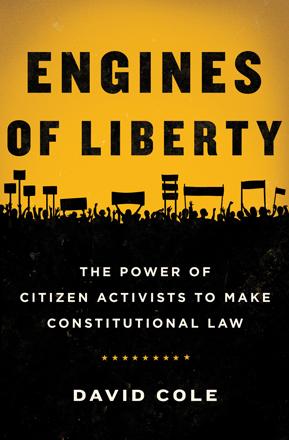You are here
Book sheds light on role of Constitutional Court
By Dana Al Emam - Nov 09,2016 - Last updated at Nov 09,2016
AMMAN — Through its role in overseeing the constitutionality of laws and interpreting the Constitution, the Constitutional Court is a fundamental pillar of the civil state, a legal expert said on Tuesday.
Speaking at the launch of his book on the general theory of constitutional legal systems, Kamel Saeed, a member of the Constitutional Court, said the autonomy of constitutional courts preserves citizens’ rights and freedoms, which are guaranteed by the Constitution but some laws and regulations might violate.
“In addition, the Constitutional Court oversees the immunity of the parliamentarian and democratic systems,” he added at the event, held at the Arab Thought Forum (ATF).
In 10 chapters, the book discusses theories and applications of constitutional systems, and the historical evolution of constitutional courts around the world, highlighting the opinions of supporters and opponents.
Saeed explained that those who oppose the formation of constitutional courts have argued that no authority should oversee the legislative authority, which consists of the people’s representatives, and therefore carries public aspirations.
But constitutional courts are not part of the judicial authority, the author noted, adding that the Constitutional Court is independent in decision making and financial allocations, and its members do not serve at other courts.
The book also depicts the functions of the Kingdom’s Constitutional Court and its role in overseeing the constitutionality of laws and regulations as well as interpreting legal texts.
Saeed said the court looks into cases contested by the majority of the Senate, the Lower House or the Cabinet.
Individuals, who are part of a lawsuit in court, can also contest the unconstitutionality of laws and regulations.
Verdicts of the Constitutional Court are final and cannot be appealed, said Saeed, a former minister of Prime Ministry Affairs and Legislation.
Furthermore, the 700-page book includes comparative studies on similar courts in France, Morocco, Mauritania, Algeria, Tunisia and Egypt.
Commenting on the book, Numan Khatib, another member of the Constitutional Court, said that constitutional reform and political reform cannot be separated.
He added that Jordan, Egypt, Sudan, Bahrain and Palestine are the only countries in the region with independent constitutional courts, while Kuwait has a constitutional court with members serving at other courts as well. Meanwhile, Iraq and the United Arab Emirates have high courts.
Other countries in the region adopt the French model of constitutional councils, such as Algeria and Mauritania, he said.
ATF Secretary General Mohammad Abu Hammour said the book is a “rich reference” for legal experts, legislators and politicians, adding that the book documents the development of the Jordanian Constitution.
Related Articles
AMMAN — A Royal Decree was issued on Saturday appointing Hisham Al Tal as president of the Constitutional Court, as well as appointing Akram
Engines of Liberty: The Power of Citizen Activists to Make Constitutional LawDavid ColeNew York: Basic Books (Perseus), 2016Pp.
DAKAR — Mauritanian activists on Tuesday praised the United States’ decision to end trade benefits over the practice of slavery and called o


















